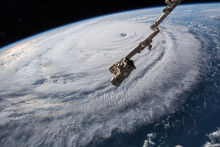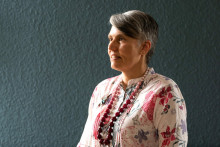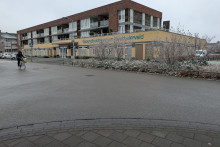The PhD researcher is studying the impact of flood risk and climate change on the housing market in the U.S. Some of his studies focused on the exact places that are now directly and severely hit by hurricane Florence. Due to the ongoing hurricane, De Koning will be able to test if his findings are correct.
Flooding leads to poverty
Koen de Koning is developing a mathematical model to predict how people react to flood risk and how it affects the housing market. ‘We see that after major flooding, the house prices in the area drop significantly. I want to know what are the mechanisms behind this. Is it a low demand, is it a high supply because everyone is moving away, is it the physical damage of the properties?’ This issue and the model goes a lot further than just real estate development, though. ‘Flooding impacts the demographics. We can see that as an immediate response to flooding more poor people move to the area.’
‘Hurricane Florence is like a live test of this hypothesis,’ says the scientist. ‘My model predicts that if there is a severe flooding and you let the market do what it naturally does, house prices immediately drop by up to 25%. Especially the richer population can afford to move out, selling houses at an even lower price to ensure they sell, while the poor are forced to stay. This means low-income population becomes interested in the area, moving in and ignoring the flood risk. The area gradually becomes impoverished, and therefore more vulnerable because poor people don’t have any resources to recover from the next flood.’

Koen de Koning
‘Observing how people react during the hurricane’
Right now it’s of course too soon to tell what precisely will happen in North and South Carolina after the hurricane and if the model will prove to be correct. As the researcher points out, we are talking of developments that take years. However, De Koning is paying close attention to the situation in the U.S. this week. ‘I’m observing how people react during the hurricane. I can see that many of them choose to stay, that they underestimate the risk. These decisions on whether people stay or leave are also an important input for the model.’
‘I believe this is highly important work,’ he continues. ‘We need to know how to build resilient societies that can deal with climate change. We need to make the government and policy makers see that they need to intervene, that they should take action, otherwise the market mechanisms will put the vulnerable most at risk. We need to learn from events like the hurricane Florence and protect our society; make sure that poor people don’t get the worst of it.’







